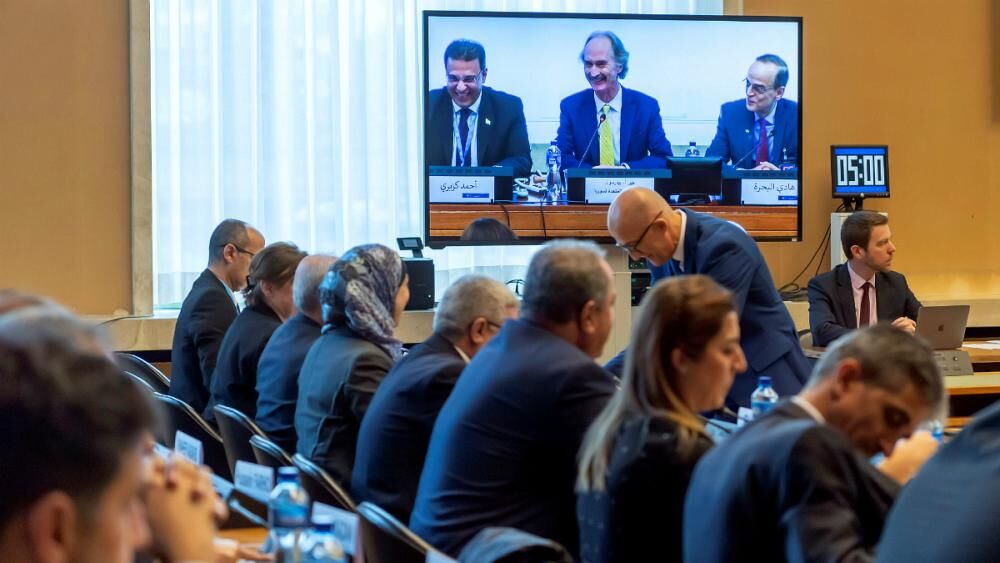Recently, the UN envoy for Syria, Geir Pederson, announced the holding of the third round of meetings of the Syrian Constitutional Committee on August 24 to pave the way for an agreement between the parties to the crisis in Syria. He stressed that the principles of the constitution are based on respect for the UN Charter, the unity of Syria, the sovereignty and territorial integrity of this country. Given this, the question now is where the political process in Syria will end and what obstacles the Syrian government faces in advancing the Constitutional Committee. Davood Ahmadzadeh, an expert on Middle East issues, answered these questions in an interview with the website of the Strategic Council on Foreign Relations.
The following is the full text of this conversation:
What are the reasons for the importance of holding a meeting of the Syrian Constitutional Committee?
The main point in the process of nation-state building in Syria is related to the agreements reached between the legitimate government of Syria, Bashar al-Assad, and groups that accept the structure of the constitution and the territorial integrity of Syria. The agreements were based on the fact that in a legal process, elections will be held in various provincial centers of Syria and that people and various political groups, including those opposed to Bashar al-Assad’s government and those who accept the Syrian political process, will participate in a democratic electoral process. In this way, they can resolve the Syrian crisis, which has been going on for more than eight years, by going to the polls and have political participation.
What are the obstacles facing the Syrian opposition and government in advancing to compile a constitution?
The first obstacle in this process, with the aim of achieving political stability in Syria, is that some countries in the region, such as Saudi Arabia and its allies, continue to discuss the overthrow of Bashar al-Assad’s government. The United States is another serious hurdle in the Syrian political process, which is an important impediment in the Syrian political process by occupying its territory and refusing to end the occupation. Washington is also trying to throw obstacles in the way of political participation in Syria by supporting some of the remaining Takfiri groups and creating more political confusion in the country.
At the same time, the lack of consensus among groups that agree with the political process and reach an agreement with the government in Damascus is one of the barriers to political participation in the country and the holding of elections. Also, despite the agreeing views between the Syrian opposition groups, there is still no consensus between them to reach a national agreement and sit at the negotiation table with the Damascus government.
According to the news, the meeting of the Constitutional Committee will last for a week. What scenarios do you envision for the political future of Syria?
The current political process is unlikely to reach the stability needed to overcome the problems inside Syria in the short term. Because of the depth of Syria’s problems, both politically and economically, it seems unlikely that the conditions will be created quickly for the necessary political stabilization and calm with the aim of overcoming the crisis in this country.
Finally, what steps should the government of Bashar al-Assad take to speed up the political process in Syria?
Considering the ability of the legitimate Syrian government to exercise sovereignty in the occupied territories and the return of refugees from different areas to the cities, it promises that if there is political will among the opposition and the will of countries in the region as well as the UN to stabilize the situation in an appropriate time interval one can hope that the conditions will be created for in-depth political talks between the government of Bashar al-Assad and various groups. The bottom line is that the involvement of foreign forces inside Syria must be reduced and the path to stability inside the country must be taken through political talks or the Syrian-Syrian plan, which Iran has also claimed.
The Syrian-Syrian plan is in fact between the real Syrian opposition, which respects the sovereignty of this country and is committed to the national interests of their country, and the government of Damascus. Given some of the problems, in this process, the Syrian government must be willing to resolve the problems through unconditional talks with the opposition.










0 Comments